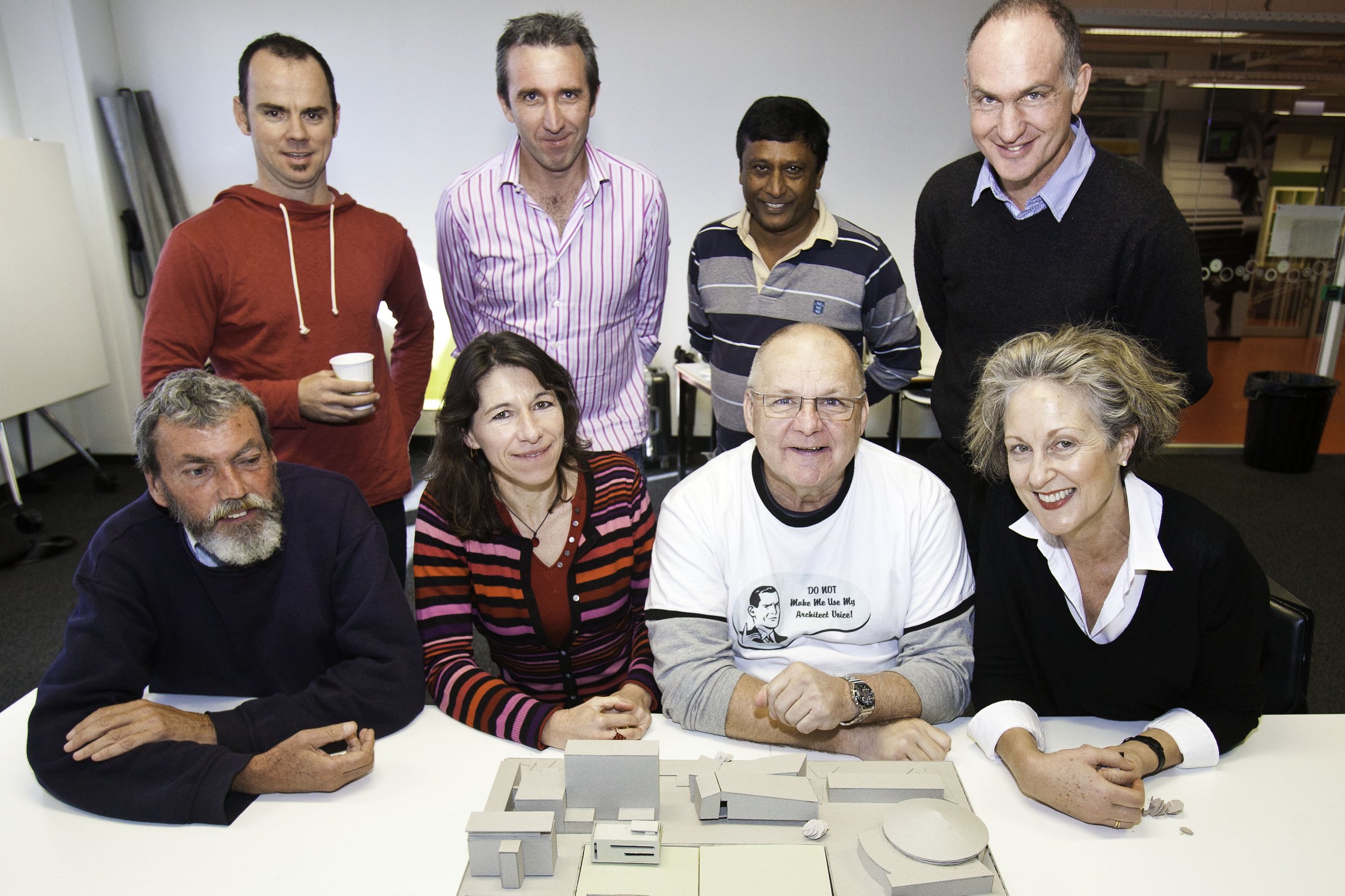about us
environa studio, founded in 1986, is a highly innovative architectural practice, with an emphasis on the triple bottom line of social, environmental and economic responsibility.
environa studio emphasises design flexibility to create dynamic solutions in short time frames. Our solutions are creative and experimental, but always practical and liveable. We have written widely on architecture and sustainability and are often quoted in the media for our advocacy.
Our Studio at 224 Riley Street
We design for public, community and private clients, spanning urban design, masterplanning, civic, commercial and multi-residential buildings, eco-tourism, group housing and retirement villages.
We are a multi-disciplinary practice of 10 professionals, headed by principal architect Tone Wheeler and managing partner Jan O’Connor. By integrating architecture, planning, interiors and landscape, we respond to our clients’ brief and site to produce an individual response.
practice philosophy
environa studio has a design philosophy based on 5 fundamentals:
The purpose of each project will reveal a detailed brief that addresses the real needs of our clients.
The place, its site and climate, will develop an environmentally appropriate architecture.
The proposition of a strong design concept leads to contemporary solutions with innovative spaces.
The use of precedent in form and typology will make culturally and socially appropriate solutions.
The patterns of construction will make the most appropriate use of materials and energy.
We are seeking ways to live in a far more environmentally conscious fashion, from increased communality in the building forms, to better land, energy and water use. Through traditional and innovative typologies, we aim to achieve greater efficiencies and a lower carbon footprint. We are reinterpreting the positives of past urbanity for a more sustainable future.
BSc(Arch)(Hons), BArch, LFRAIA, NSW ARB 6239
Tone Wheeler
Tone Wheeler is an Architect, author, educator and consultant with an abiding interest in environmentally sustainable design (ESD). Since 1986 he has been design leader at environa studio.
In the mid seventies at the University of Sydney he assisted in the construction of the "Autonomous house", a working example of a low energy house constructed entirely from recycled materials. Upon graduation tone worked for the Australian Government in Canberra where he designed a range of low cost social housing that won the R.A.I.A residential design award (C S Daley Medal) in 1980.
Tone is a past chair of the AIA National Environment Committee & a past member of the Sustainability Committee. After a ten year association, he retired from the board of ABSA (Association of Building Sustainability Assessors) and he was also a member of the Building Professionals Board. Tone was made AIA Life Fellow in 2022 for his contributions to the discipline and profession of architecture. He has won the A+D Sustainability Award and the AIA Leadership in Sustainability Prize.
Tone has taught extensively over the past 30 years, he has been on the faculty of 3 universities, is a sustainability advocate and frequent speaker at architectural conferences and seminars. he has been a judge on ABC tv ‘the new inventors’, a member of the ‘woodies’ and a ‘homie’ on ABC radio.
BArch (Hons)
Jan O’Connor
Jan O'Connor trained as an Architect and has extensive experience in retail and interior design. Whilst completing an architectural degree (hons) at R.M.I.T. Melbourne, Jan was employed as the retail design manager in the property development department at Myer Stores LTD.
After ten years of corporate employment, Jan left and co-founded the iconic retail tea company T2, where she created and implemented the overall brand design for stores, product and packaging. Following the success of T2, Jan returned to architectural practice with partner Tone Wheeler at environa studio.
writing & Media
Tone on Tuesday
In the last three years, Tone has written over 150 articles for Architecture and Design as ‘Tone on Tuesday’, covering all aspects of design, in popularising difficult ideas, and particularly in the relationship between design and politics, social housing and sustainability.










